Strengthen Your Reading Muscles with the Classics
I recently enjoyed a debate with some teenagers about what makes a good book. We were reading a classic with which they were struggling to connect. This started a lively discussion on the merits of reading this book. Was it a good book? What makes a book good?
My final conclusion was that a book is good when you can learn from it. This doesn't mean non-fiction, fact-based books are the only good books. It means that I am challenged, encouraged, inspired, and changed by reading it. As the reader, the burden of learning something from the book is on me. Classics make good teachers because they don't give up their goodness easily. You have to fight for it.
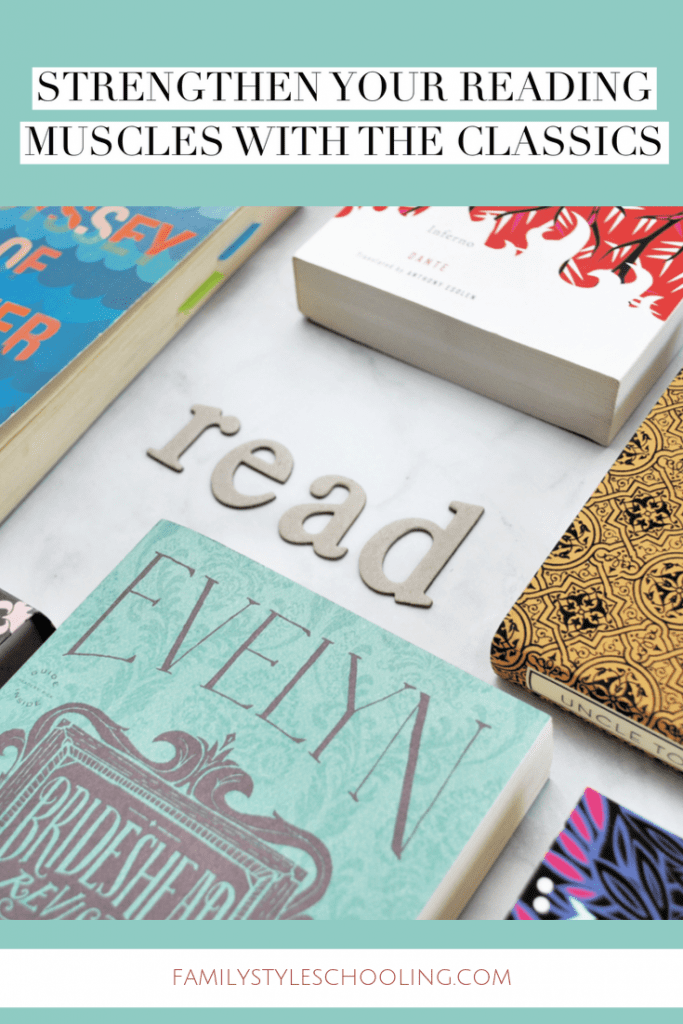
Is the Bible a good book?
If a student believes that books are good if they instantly capture their attention, keep them up all hours of the night waiting to see what happens next, and thrill them with delight with an unexpected ending, then they will find very few classics "good". The extension of this idea is that if no classics are good books, then the Bible, which is the greatest classic of all time, is not a good book.
Does God's word instantly draw us in to its truth? Do we stay up all night waiting to see what happens next in God's story? Is the ending so delightful that we can't wait to start the book all over again?
These kinds of questions challenge me. My pastor recently suggested trying to sit down and read the Bible in a day. He wasn't suggesting studying it, but simply reading it like you would a good book - a page turner. While I didn't make it all the way through in one day, I did start trying to read it like I would approach my favorite books. I've learned that as I become a stronger reader, I have greater access to the Bible. So I'm working my brain out on some classics, and finding the strength training allows me to appreciate all of the books of the Bible.
Challenge in reading the classics
Classic literature poses many challenges that make you fight to glean their goodness. The Bible is no different.
1. The Language is foreign
You don't actually have to find a book in a foreign language for it to feel like your reading in a foreign language. Have you tried to read Canterbury Tales in the original Old English recently? It doesn't even sound like English. The Pilgrim's Progress can feel the same in the sense that it just isn't written with the vocabulary and sentence structure that modern writers utilize.
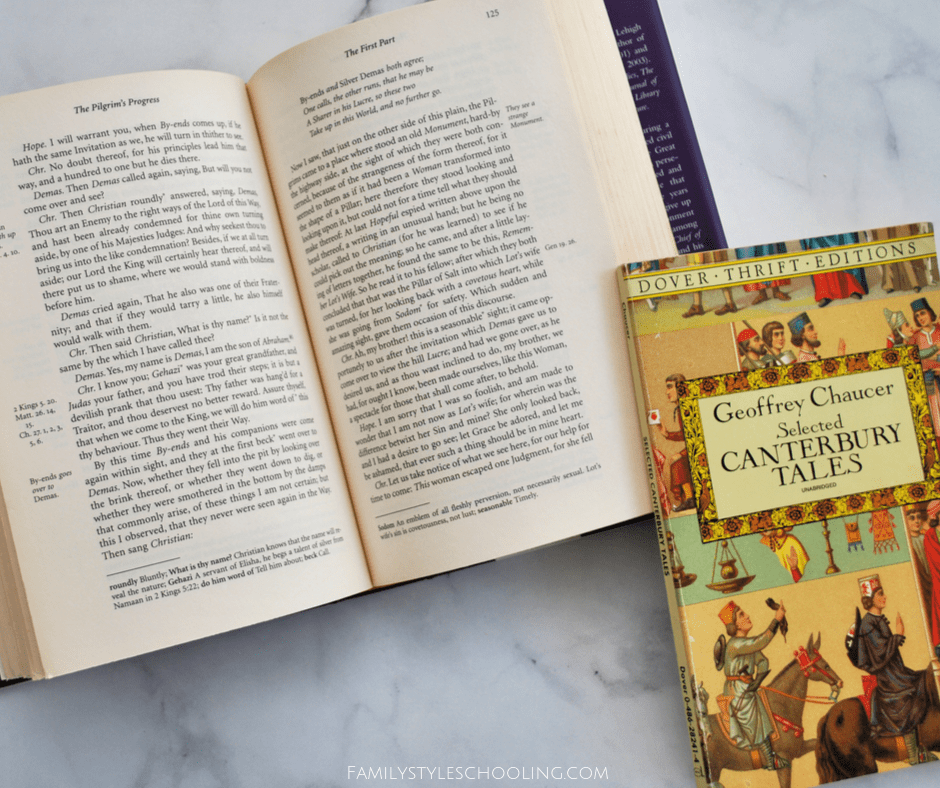
2. The Time Period is foreign
The next difficulty readers face is the fact that they aren't living in the time period of the author. Even a modern historical fiction book is easier to read because the author shares the same time period as their reader. That means that they know how to bridge the gap between modern thinking and historical thinking. Gulliver's Travels is a challenging read because his satire aims its jabs at the culture of the day. If you're not familiar with 18th Century English government or the Whigs and Tories, then you might miss his point.
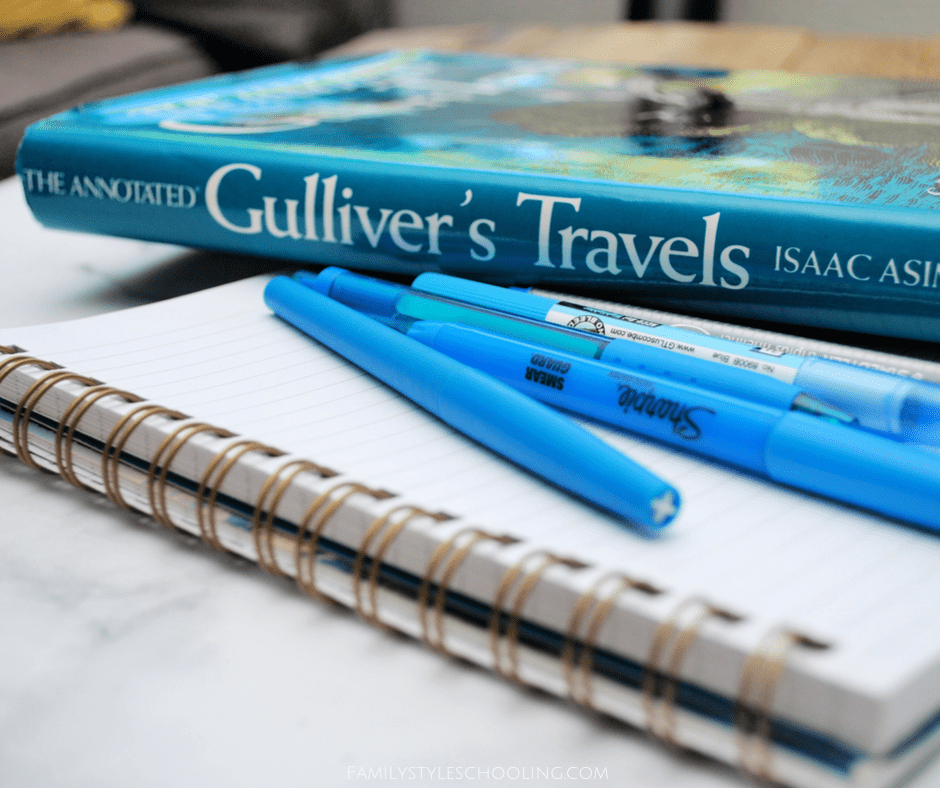
3. The Writing Style is foreign
Even worse, each generation has its favorite style of literature to devour. You may not appreciate Robinson Crusoe if you're not a fan of travel adventure novels. In the same way, you might miss the beauty of Gothic romances like Jane Eyre if you're hoping it will be a modern romance.
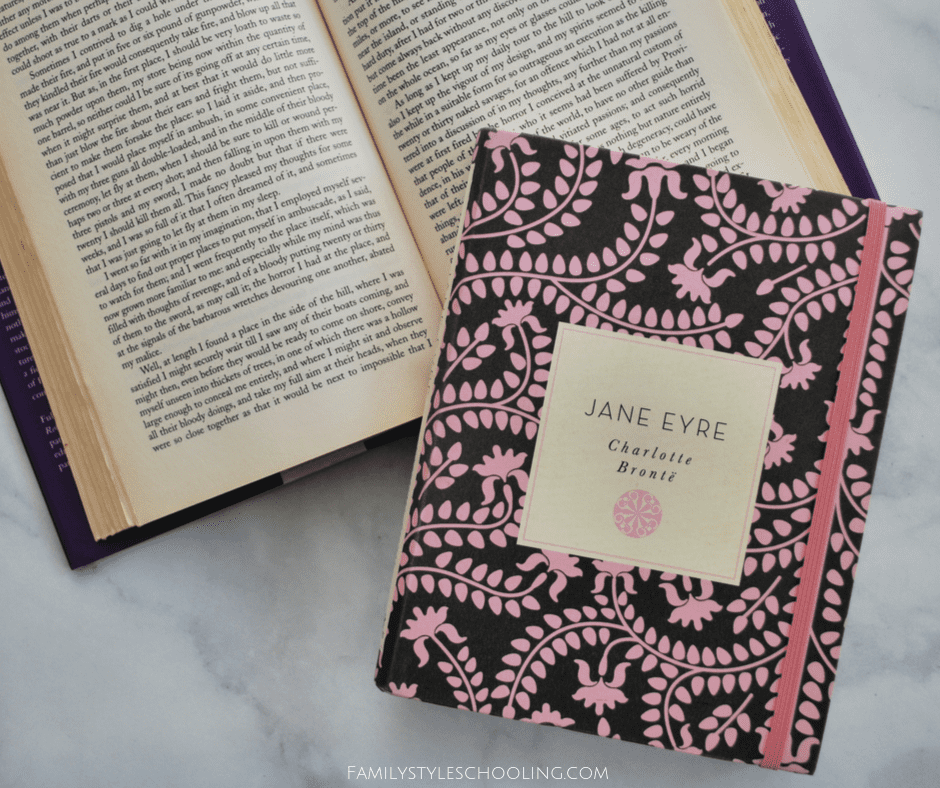
I totally understand the challenge here because I grew up reading Sweet Valley High. The good news is that even someone who didn't grow up appreciating the more challenging literature can grow to love it in time.
Moving from Foreign to familiar
In order to move from the foreign to the familiar we're going to have to build a bridge. That's going to take work. It won't be easy. Here are some tools to help bridge the gap between our modern sensibilities and those of the classic authors.
1. suspend judgment
It is way too easy to start a book, struggle getting into the story, and then just stop reading. I've found that many books I've thought were dull came to life by the end like A Tale of Two Cities. Then again there are those that dragged on forever and never seemed to end...but I had to get to the end of the book before I could fully make that assessment. Persist to the end before you start to make a judgement.
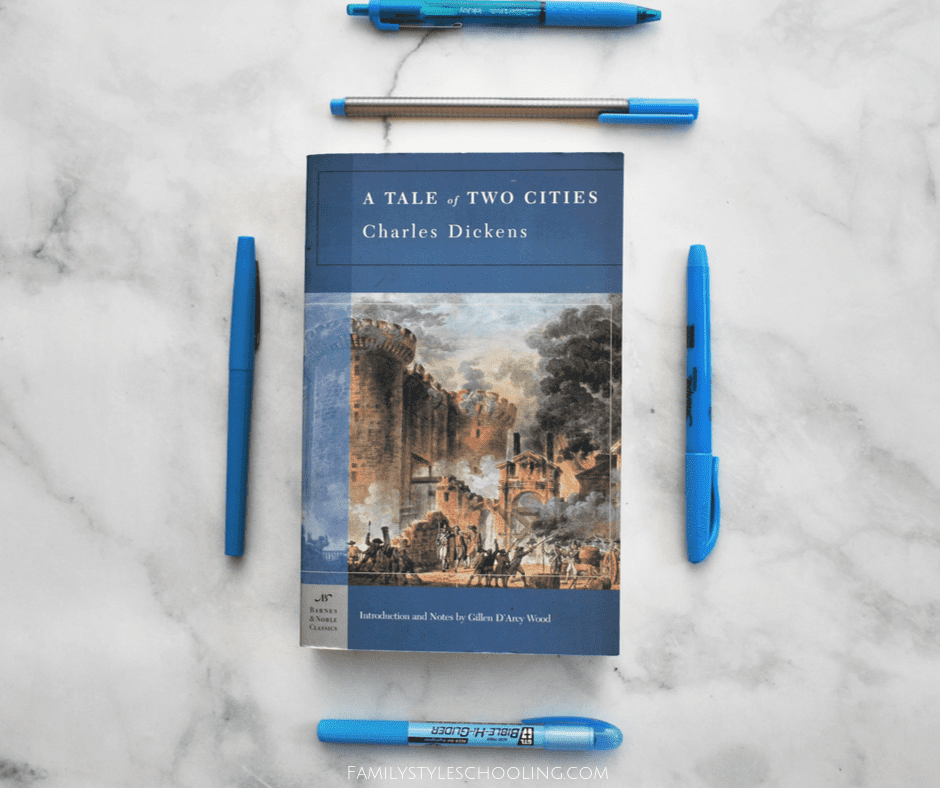
2. Employ curiosity
As I read, I like to try to see if I can discover the hidden beauty in a book. If it is deemed a "classic", how did it earn that title? It is like when someone tells you that a song is their favorite, you listen to it differently. Someone has found some profound beauty in this work, so there must be something to find.
Another strategy I've used is to read a book with the attitude of this is the most interesting thing I've ever read! When I think it is interesting, I can usually find something that is interesting when I read.
3. Keep Moving
One of the best tools I've used is Audible. I love listening to the book aloud as I read along. This helps my brain keep from wandering and gives me that extra boost to finish reading to the end. I know Tolkien says, "Not all who wander are lost," but I think it is definitely true that all who wander while they're reading are lost! Having an audio version of a book helps to discipline your focus as you read, which will allow you to get more out of everything you read.
4. Take notes
I know this idea can seem counterproductive to my previous encouragement, but note taking helps to focus your interest in the story and draw out some of those meaningful observations. This is where you can bring out your detective skills and see if you can find hidden connections that aren't visible on the first pass. While you can simply take notes on each chapter, here are some alternative solutions:
- Make a Character Chart - list the characters and map out their relationship to one another or encounters with one another.
- Timeline of Events - Every good detective knows that the timeline is where you start when trying to figure out what is happening
- Map Out the Story - Sometimes it can be helpful to map out the story in a way that fuses the two together in a character chart timeline. It can get kind-of messy, but it is sure helpful in gaining understanding of the overall story.
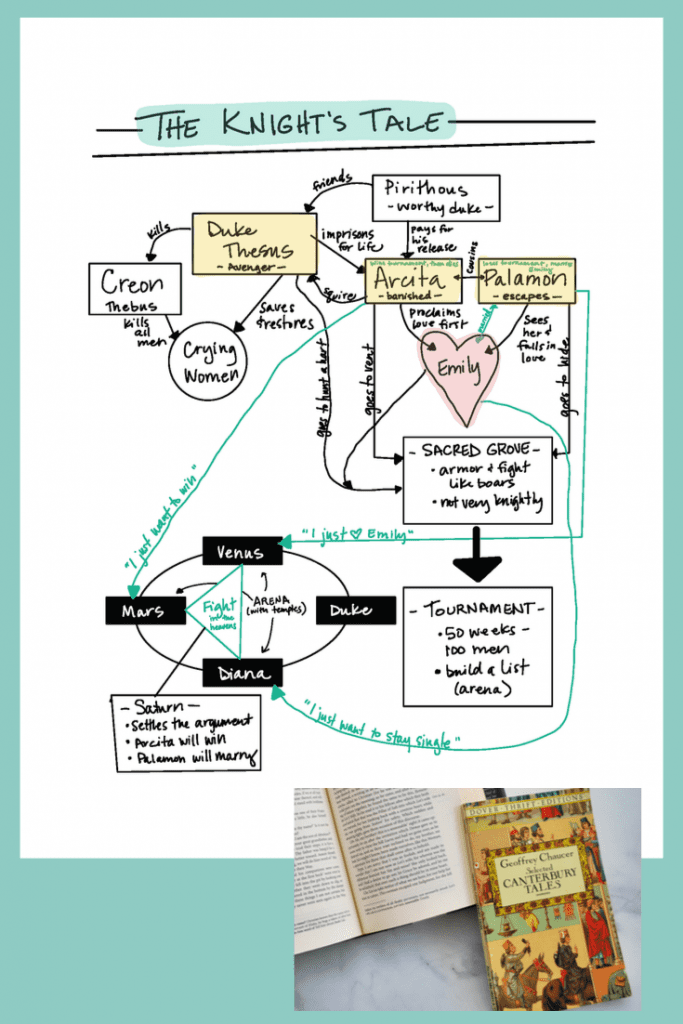
5. Get Help
There is nothing wrong with allowing a guide to help you walk through the process. I love to use SparkNotes to ensure I'm understanding what I'm reading. I'm not using the notes to read the book for me, but to keep me on the right track. One resource that transformed my reading is the CiRCE Institute's highlighting method. They have a book now that explains the process: A CiRCE Guide to Reading.
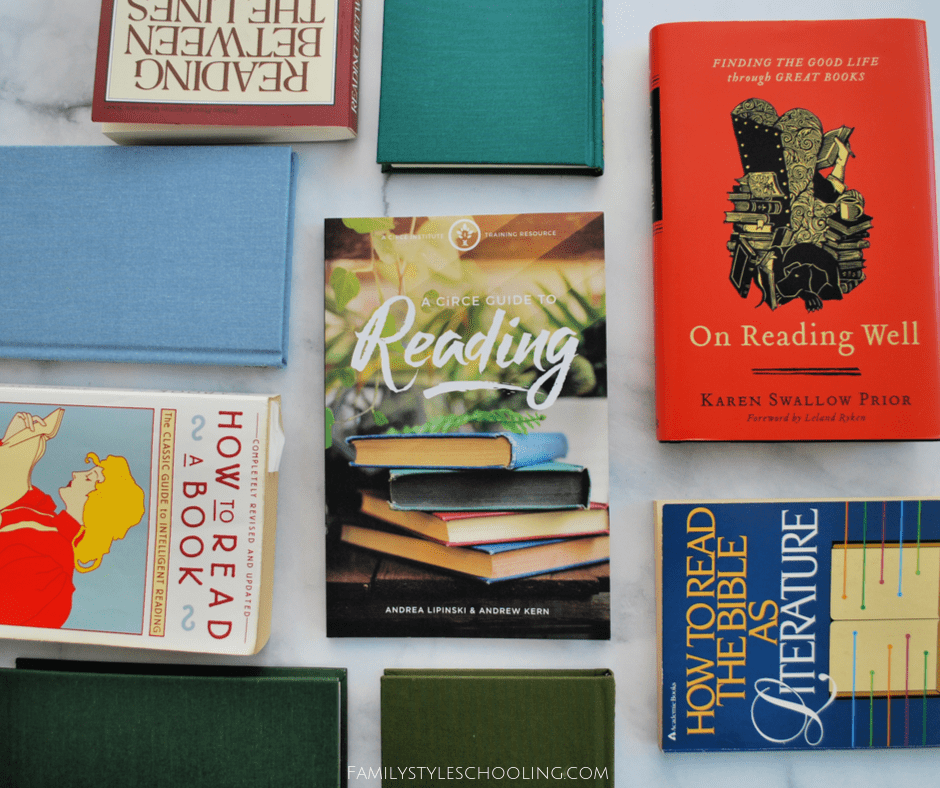
Here are some other resources I love on how to read:
It's also helpful to have some resources that introduce you to the stories:
What Happens when you become a stronger reader?
With anything you practice, you become stronger and better able to navigate the challenges of difficult material. It comes slowly, but each time you read you become better able to see things that you couldn't see before. It's like you're slowly gaining access to a whole other world.
Martin Luther fought for a whole generation of people to have the Bible in their own language so they wouldn't be dependent upon someone else to translate it for them. Today we have access to the Bible in our own language, but we either don't read it or we can't. It's probably a combination of both.
We need to strengthen our reading skills so that we don't slip into a world again where people don't read the Bible for themselves and therefore don't think for themselves.
Betsy Strauss is an unexpected homeschooler, mother of three, who is in a relationship with a sweet man for life. She loves reading books, drinking coffee, and learning anything with her kids.

